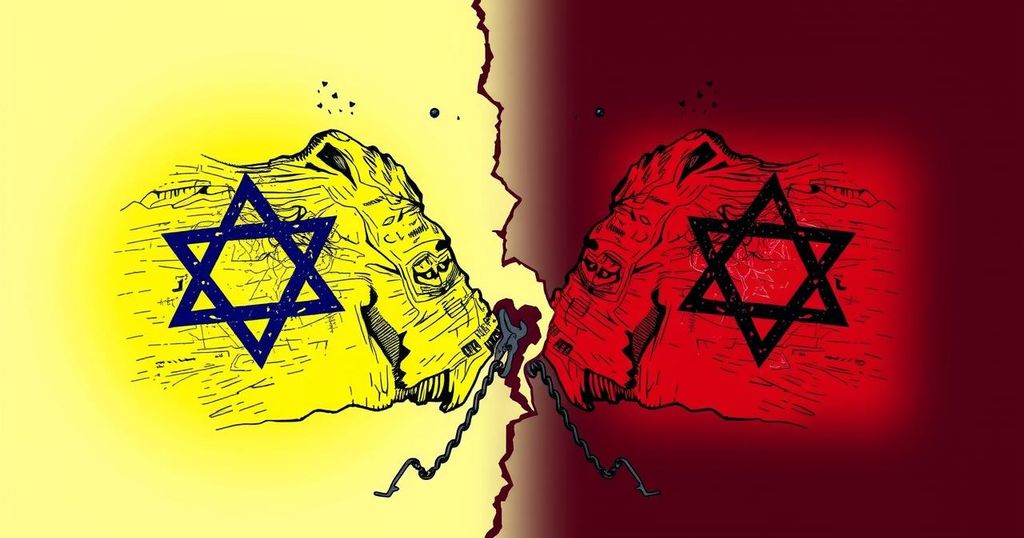A ceasefire between Israel and Hezbollah took effect in Lebanon, ending 14 months of conflict fueled by mutual attacks. The deal, brokered by the U.S. and France, entails Israel withdrawing troops while Hezbollah retreat from specific areas. The ongoing humanitarian crisis remains a pressing concern as both nations aim for stability amidst delicate negotiations.
A ceasefire between Israel and Hezbollah commenced in Lebanon at 04:00 local time on Wednesday, marking an end to over 14 months of ongoing conflict. This agreement, announced by Israel, France, and the United States, aimed to establish a lasting cessation of hostilities. Despite the ceasefire, skirmishes were reported until its initiation, indicating a precarious atmosphere. Israel subsequently issued evacuation orders for areas of Beirut, while Hezbollah launched drone strikes into Israeli territory prior to the truce.
The Israel-Hezbollah conflict has persisted for over a year, intensely affecting the residents of both nations and resulting in significant casualties and displacement. The conflict escalated after Hezbollah’s retaliatory rocket fire following a deadly attack by Hamas on Israel in October 2023. This ceasefire represents an effort spearheaded by diplomatic channels from the United States and France, in hopes of re-establishing stability in the region. Under the terms of the ceasefire, Israel will withdraw troops from southern Lebanon, and Hezbollah fighters will retreat south of the Litani River, to be replaced by Lebanese government forces.
The recent ceasefire between Israel and Hezbollah signifies a critical step towards restoring calm in Lebanon after a devastating period of conflict. Both the region’s stability and the humanitarian needs of its displaced residents remain paramount concerns. As both sides navigate the terms of the ceasefire, observations from global diplomatic efforts indicate a potential for future negotiations to address broader grievances. The situation requires vigilance to ensure compliance with the agreement and prevent further escalation.
Original Source: www.bbc.com






